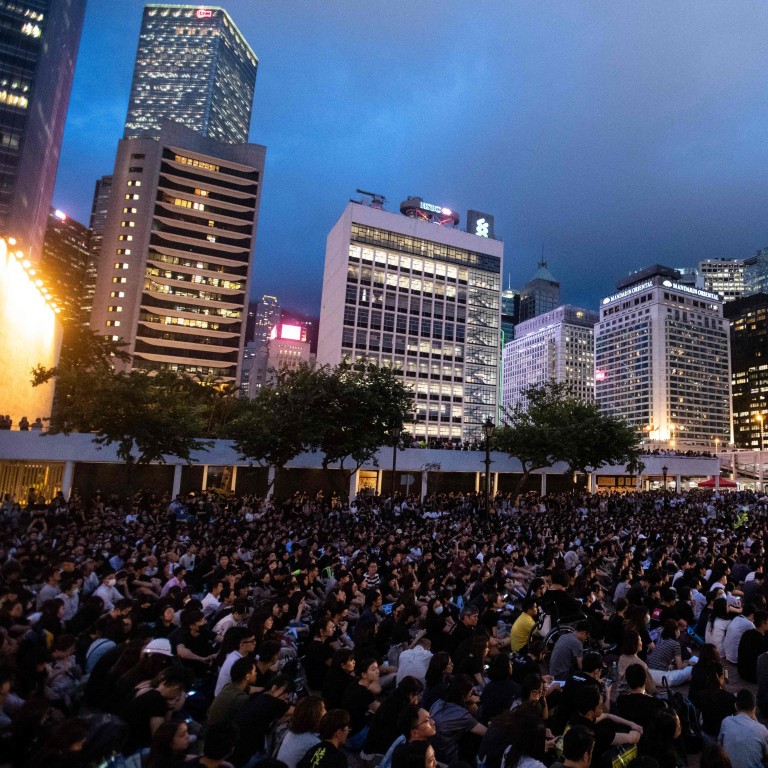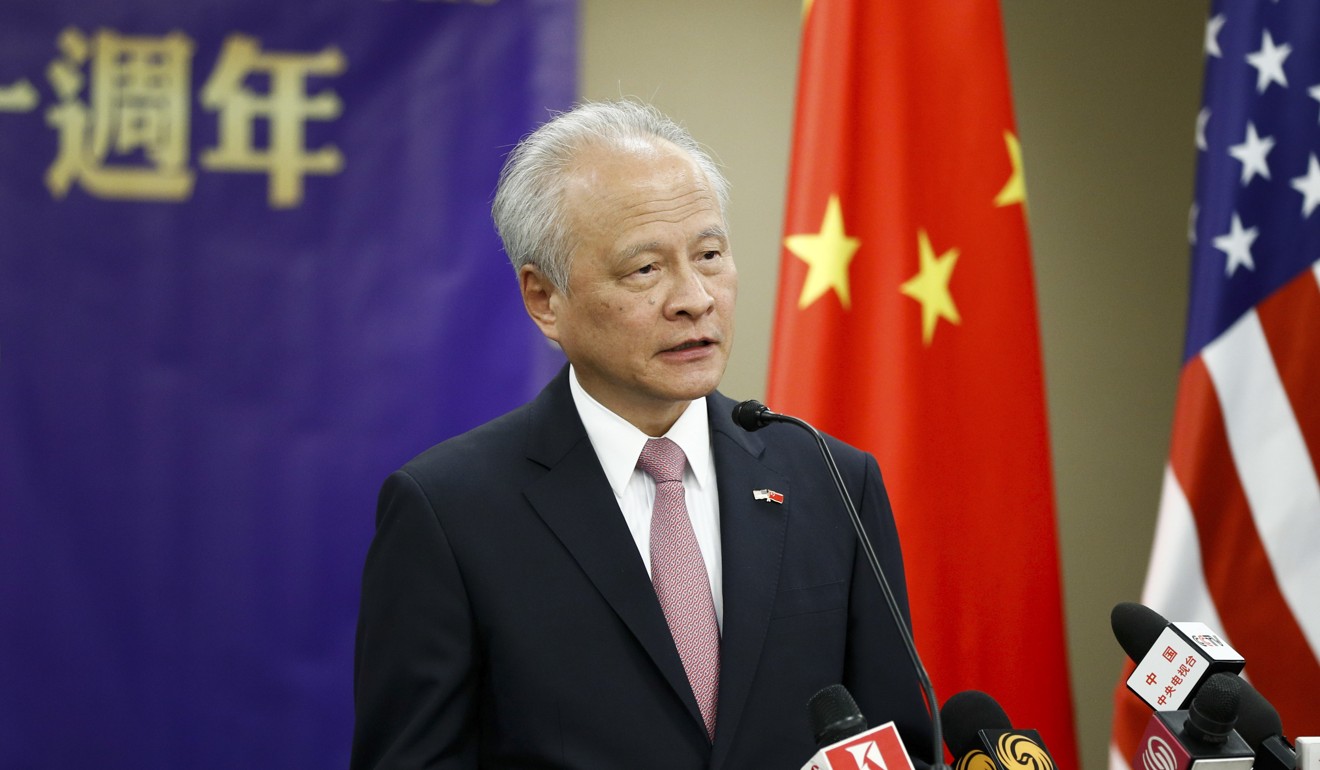
China’s ambassador to US blames ‘ill-intentioned’ external forces for Hong Kong protests
- Cui Tiankai says some in the West seek to use the unrest as ‘a bridgehead to attack the mainland’s system’
- Cui does not name the US directly, but follows other Beijing officials who accuse Western countries of ‘fanning the fires’
China’s ambassador to the US has echoed the accusations of his boss and other Beijing-aligned officials that anti-China forces outside the country are behind the unrest plaguing Hong Kong for two months.
“The biggest peril for ‘one country, two systems’ comes from ill-intentioned forces, both inside and outside Hong Kong, who seek to turn the [special administrative region] into a bridgehead to attack the mainland's system and spark chaos across China,” ambassador Cui Tiankai said in an opinion piece published by Newsweek, referring to the guiding principle of mainland China’s relationship with the city.
“For them, the well-being of Hong Kong's 7 million people is a disposable pawn in their strategy. The last thing these people want to see is the rejuvenation of the Chinese nation, Hong Kong compatriots included.”
Cui, 66, who has served as ambassador to Washington since 2013, did not accuse the US directly, instead blaming “some Western politicians” for stirring discontent sparked initially by the Hong Kong government’s attempt to push a controversial extradition bill through the city’s Legislative Council.

Cui’s column came a day after China’s top diplomat. Yang Jiechi. accused the US and other Western countries of “fanning the fires” of unrest in Hong Kong by supporting “violent radicals” who seek to destabilise the city.
On Wednesday, former Hong Kong chief executive Tung Chee-hwa – now a vice-chairman of China's top political advisory body, the Chinese People’s Political Consultative Conference – blamed the US and Taiwan for serving as the “masterminds” of the city’s unrest.
Cui’s piece also stressed the importance of “one country” over “two systems”, since the 1997 handover of the former British colony to Beijing.
Trump calls ‘riots’ an issue between Hong Kong and Beijing
“Any talk about the ‘two systems’ out of the context of ‘one country’ would be illegitimate, and to question the necessity of upholding ‘one country’ with the exercise of ‘two systems’ constitutes a challenge to China's sovereignty,” Cui said.
Under one country, two systems, Hong Kong was guaranteed a high degree of autonomy after it was handed over from British. It states that the city’s “capitalist system and way of life shall remain unchanged for 50 years”.
The proposed legislation that spurred the continuing uproar in Hong Kong would permit extraditing fugitives to any jurisdiction with which the special administrative region of China did not have an extradition agreement, including mainland China. Hong Kong Chief Executive Carrie Lam Cheng Yuet-ngor has suspended the bill, but has refused to withdraw it.
Will China send in troops to stamp out Hong Kong protests?
The ambassador’s column labelled protesters “radicals”, citing the damage caused when they broke into Hong Kong’s legislative chambers last month, but did not mention an apparently coordinated attack on protesters, journalists and passers-by at a railway station in the city’s northeastern district of Yuen Long two weeks ago.
That rampage left 45 people injured.
“Look at the radicals in Hong Kong who broke into and vandalised the Legislative Council, beat and maimed the policemen, and illegally stored dangerous assault weapons,” Cui said. “They even stormed the liaison office of the central government and defaced the national emblem.
“Were the US to witness a similar assault to its stability, there would undoubtedly be an attempt to restore order.”
Official comments from the administration of US President Donald Trump about the unrest in Hong Kong have varied.
Asked whether he was concerned by media reports that Beijing might intervene in Hong Kong, Trump said on Thursday that the city had experienced “riots for a long period of time”.
“And I don’t know what China’s attitude is,” Trump added. “Somebody said that at some point they’re going to want to stop that. But that’s between Hong Kong and that’s between China. Hong Kong is a part of China, they’ll have to deal with that themselves.”
Meanwhile, Secretary of State Mike Pompeo struck a more critical tone.
Speaking about the issue at an event in Thailand on Friday, Pompeo said the US “believes in human rights and freedom”.
“The current unrest in Hong Kong clearly shows that the will and the voice of the governed will always be heard,” he said.

